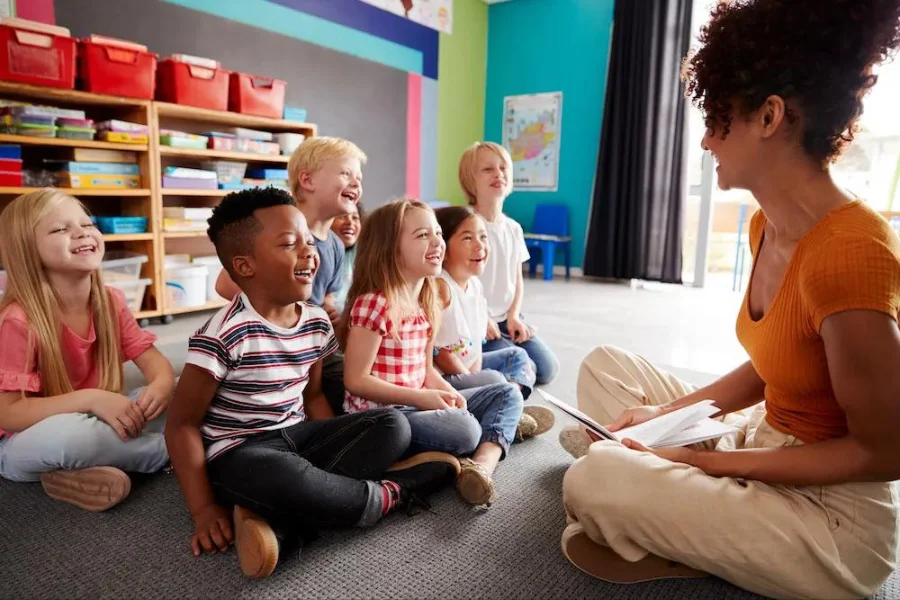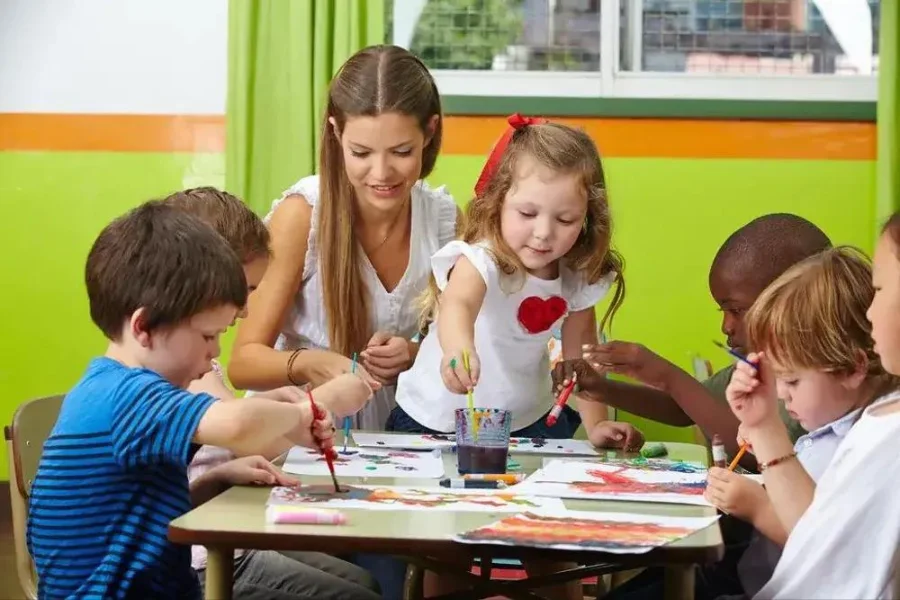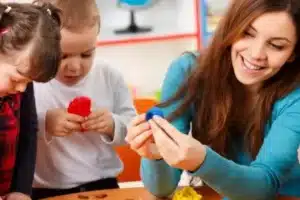
Source: forbes
Valuable learning and development of young children are assured only because of effective teaching strategies applied by a skilled educator of early education. To address the diverse needs of young learners and keep them focused on basic learning an interactive teaching style is foremost. Applying balanced Teaching Strategies for Pre K benefits to generate an inspiring environment, discovering the best potential of children. This resourceful article segregates ten effective Teaching Strategies for Pre K in detail, which is extremely supportive for aspirants and novice teachers.
For more information of Kindergarten Teacher Training Course Call/Whatsapp on +919869546913 / +919869866277.
To Download brochure of Kindergarten Teacher Training Course, Click Here!
Effective Teaching Strategies for Pre K
Teaching Kindergarten students is a challenging and exciting responsibility. To seamlessly manage a classroom certain effective teaching strategies for Pre K are essential to be followed. Incorporating the best use of artistic and innovative techniques helps to create an engaging learning environment for young children, keeping their attention while fostering essential skills.
Here are 10 dynamic Teaching Strategies for Pre K that can help children thrive:
Hands-on Learning
Pre K students learn best by doing. Incorporating hands-on activities like building blocks, sensory bins, and simple science experiments can make concepts more tangible. For example, teaching basic math concepts using counting beads or sorting objects by color is highly effective.
Storytelling with Props
Make storytelling interactive by using puppets, toys, or illustrations to narrate stories. Educators can convey any story for example “The Three Little Pigs” using finger puppets that fascinate children and keep them focused. Storytelling with Props enhances the listening and comprehension skills of young children.
Thematic Learning
Organize lessons around a central theme, such as seasons, animals, or space. This strategy helps integrate different subjects while making learning more cohesive and fun. A theme on “Animals” can include learning animal sounds in music, counting animals in math, and creating animal crafts in art.
Music and Movement
Use songs and dance to reinforce learning concepts. For example, singing the “Alphabet Song” while incorporating hand movements or marching to numbers helps children internalize the information in a fun way. This method also encourages physical activity.
Visual Schedules
A visual schedule helps children to comprehend the routine of the day. Picture cards demonstrating activities like snack time, outdoor play, or reading can give structure to the day, helping children work in an organized manner and become independent.
Collaborative Group Work
Encourage teamwork by assigning group tasks such as building a structure with blocks or creating a mural together. This builds social skills, cooperation, and communication. Group activities can also collaboratively introduce problem-solving.
Play-based Learning
Play is essential in Pre K. Use structured play to teach concepts. For example, setting up a pretend grocery store can teach children about numbers, money, and social interaction. Play-based learning helps children absorb knowledge through fun activities.
Constructive Support
Praise and rewards, such as stickers or high-fives, motivate children to participate and perform well. Identifying effort, rather than just success, helps build confidence and encourages a love for learning.
Flexible Seating Options
Giving children the option to sit on cushions, stand, or sit at a table encourages focus and comfort. This flexible seating arrangement helps cater to different learning styles, ensuring that children are more engaged.
Outdoor Learning
Take lessons outside to explore nature. Nature walks, outdoor counting games, or exploring textures in a garden setting allow children to connect with the environment. For instance, counting leaves or identifying different plants brings learning to life in a real-world context.
Educators can create appealing and impactful learning experiences, by integrating these creative Teaching Strategies for Pre-K. Tailoring lessons to address the changing needs of young learners through play, movement, and partnership fosters a lifelong love for education.

Source: enrichglobalacademy
Kindergarten Teacher Course
A Kindergarten Teacher Course is the grounding start for educators passionate about teaching young children aged 2- 6 years. This course provides incredible skills to create a positive learning environment where young minds can thrive, with major topics like classroom management, lesson planning, behavioral patterns of children, child psychology, and specific teaching techniques equipping aspiring candidates to be proficient educators.
Vidhyanidhi Education Society offers a comprehensive Kindergarten Teacher Course designed to provide hands-on training and in-depth knowledge.
Participants gain a range of teaching skills that help them to excel in their position of being a Pre K teacher, here are some of them mentioned:
Planning a Curriculum
Trainees learn the critical skills of designing a curriculum for different ages of students, by addressing educational requirements and goals.
Child Development Knowledge
Understanding the stages of child growth such as cognitive, emotional, or social is crucial for aspirants, and with this course, they master the techniques to handle every phase effectively.
Classroom Management
Acquire techniques to manage a group of energetic children and maintain a structured yet flexible classroom environment.
Internship Experience
Theoretical knowledge is not adequate therefore VES offers internship support after completing the course, which helps trainees gain and explore primary experience.
Furthermore, the benefits of the course are not limited here, it also equips trainees with Teaching Strategies for Pre K, including interactive play, visual aids, and hands-on activities to enhance the learning experience for young children. It ensures that trainees become competent educators of early childhood education, providing young children receive pre-eminent care and learning experience.
Vidhyanidhi Education Society (Govt. Regd.) institute that works hard to form future educators by arming them with teaching skills that contribute to the holistic development of children.
Shape young minds with expert skills! Enroll in Vidhyanidhi Education Society’s (G0vt. Regd.) Kindergarten Teacher Training Course Course today!
For more information of Kindergarten Teacher Training Course Call/Whatsapp on +919869546913 / +919869866277.
To Download brochure of Kindergarten Teacher Training Course, Click Here!
FAQs
What is the Minimum Qualification of a Kindergarten Teacher?
A kindergarten teacher's minimum qualification is high-level education, HSC-passed.
Which is Best Online Kindergarten Teacher Course?
Early Childhood Care and Education online is the best course.
Can I Become a Kindergarten Teacher After 12th?
Becoming a kindergarten teacher after the 12th has become convenient by pursuing a diploma in Preschool Teaching or EECED.



